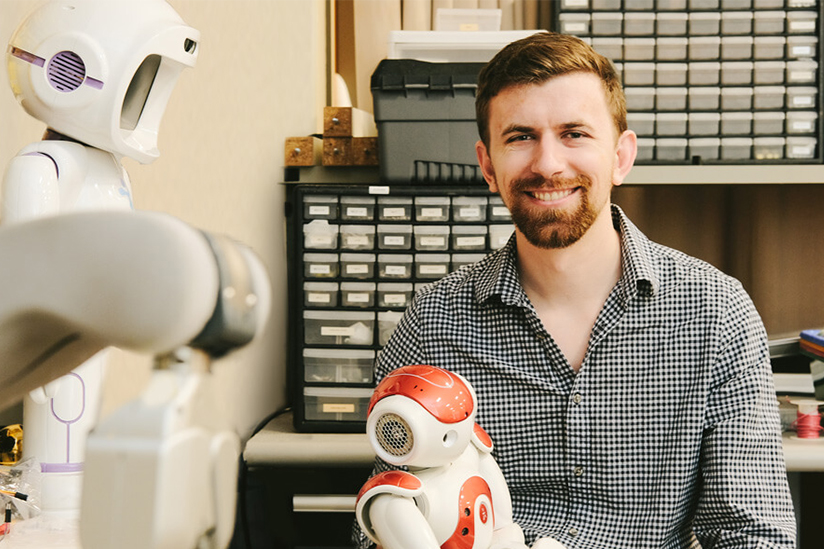Inspired by his own health crisis, graduating computer science PhD student develops empathetic robots for therapy.
It’s a winter’s day in 2022, two years into the coronavirus pandemic, when three people, all cancer survivors, gather on a Zoom call. The occasion is a group therapy session and they have come together to share their experiences and provide support.
Then, a special guest joins the room. A small humanoid robot called QT. The session gets underway. “Some days it feels like all I can think about is the possibility of the cancer coming back or not responding to treatment,” says one of the participants, a 33-year-old man from Irvine, California.
After a brief pause, QT responds. “I hear you. It sounds like you are experiencing a real and valid fear. Thank you for sharing with us. Can anyone else relate to what was just shared?”
Sitting behind the robot, just out of frame, is Chris Birmingham. Birmingham, a computer science PhD student who graduates May 10th, has been training QT for the past two years. By now, after years of modeling and training, the robot is mostly autonomous, interacting with participants in an authentic way—a huge breakthrough.
